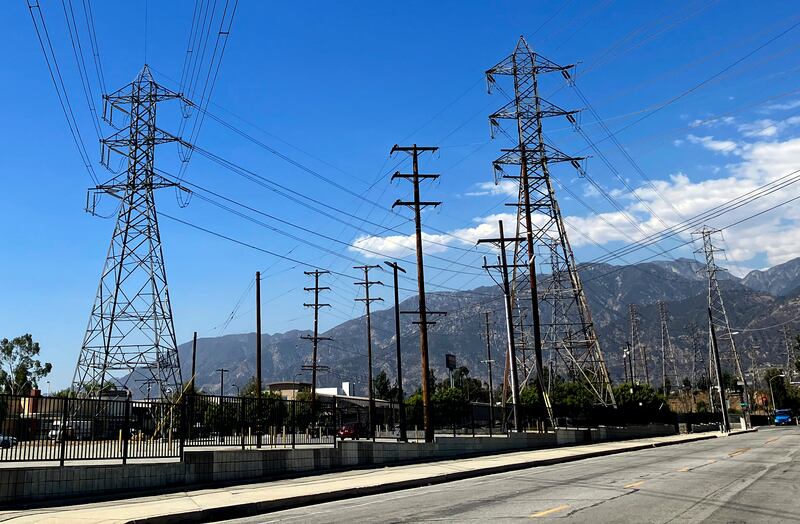California electric vehicle owners are feeling the heat after state officials asked them to refrain from charging their cars to avert power outages. This comes just a week after the state unveiled plans to ban the sale of new gas-powered cars by 2035.
The California grid operator issued a heat bulletin earlier this week, warning that the forecasted heat wave “is likely to strain the grid” over the extended Labor Day weekend.
Much of the western United States will experience excessive temperatures, which are expected to rise well above 100 degrees, according to The National Weather Service. Nearly all of California is forecasted to endure a punishing heat wave that has the potential to break records.
The Golden State energy officials’ news release says the state is preparing all available resources and is asking residents to voluntarily reduce energy consumption during issuance of a “Flex Alert” from 4 p.m. to 9 p.m. — the period of time when demand is high but there is less energy available from solar sources.
“The top three conservation actions are to set thermostats to 78 degrees or higher, avoid using large appliances and charging electric vehicles, and turn off unnecessary lights,” the statement reads from the California Independent System Operator.
The recharging prohibition request comes a week after the California Air Resources Board proposed a ban on the sale of gasoline-powered cars by 2035, in accordance with Gov. Gavin Newsom’s 2020 executive order.
The rules require 35% of new vehicles to produce zero emissions by 2026, increasing to 68% by 2030, and then 100% by 2035.
However, the electric vehicle mandate goal may prove hard to reach, president of the Alliance for Automotive Innovation John Bozzella told The New York Times.
“Whether or not these requirements are realistic or achievable is directly linked to external factors like inflation, charging and fuel infrastructure, supply chains, labor, critical mineral availability and pricing, and the ongoing semiconductor shortage,” Bozzella said.
The latest data show California residents are more likely to own electric vehicles, with over 1.1 million vehicles registered in the state, according to a report published by Newsom’s office. This comprises over 40% of America’s electric vehicle market.
But the state has less than 80,000 public charging stations, far short of the 1.2 million chargers the state estimates it needs by 2030.
Washington Gov. Jay Inslee announced his state will follow California’s lead by banning gas cars by the middle of the next decade. Massachusetts, New York, Vermont and Virginia have passed laws or established policy to follow California’s new zero-emissions rules.
However, Gov. Glenn Youngkin, R-Virginia, opposes his state’s law and called California’s fossil fuel phase-out plan a “ridiculous edict.”
“In an effort to turn Virginia into California, liberal politicians who previously ran our government sold Virginia out by subjecting Virginia drivers to California vehicle laws,” Youngkin said in a statement. “Now, under that pact, Virginians will be forced to adopt the California law that prohibits the sale of gas and diesel-fueled vehicles. I am already at work to prevent this ridiculous edict from being forced on Virginians. California’s out of touch laws have no place in our Commonwealth.”
Threats of rolling blackouts have challenged California for years. “When the sun sets, the state’s fleet of solar farms turn off,” NPR reported last year. “With the state’s growing clean energy mandates, renewables have become a significant source of energy, reaching up to 80 percent of the supply during the day.”
California asked residents to conserve power usage last year as well during the Labor Day weekend.


